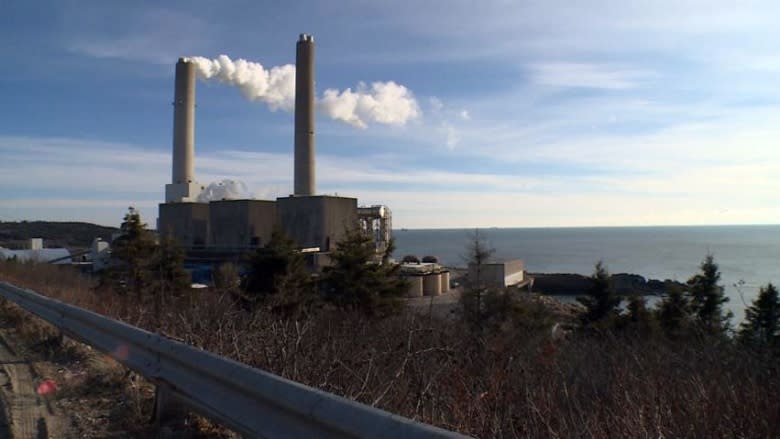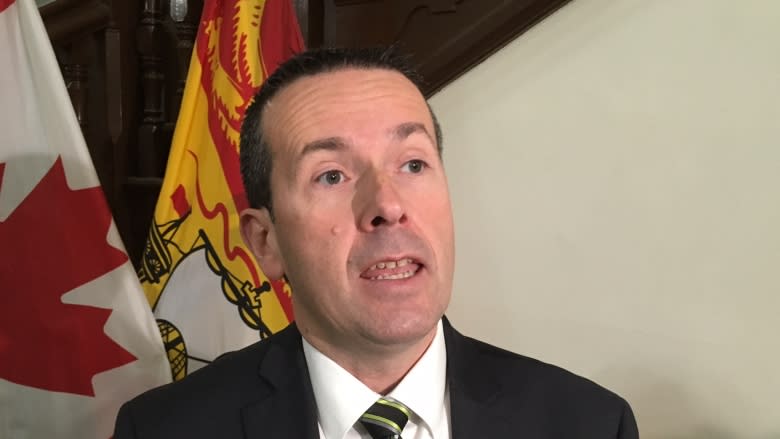Gallant government now says carbon pricing won't be revenue-neutral
Premier Brian Gallant's Liberal government is backing away from a key promise that any provincial price on carbon would not bring in extra tax revenue for the government.
Gallant promised last year that a carbon price — widely seen as a way to fight climate change — would be "revenue neutral."
That generally means that a government reduces other taxes by the same amount it's taking in through carbon revenue.
But a report by a committee of MLAs studying how to fight climate change is recommending a carbon price that would fuel more government spending on measures to reduce emissions.
"The money raised from a carbon pricing mechanism would go into a dedicated fund, open and transparent, that is applied to greenhouse gas reductions," Liberal committee chair Andy Harvey told reporters. "They take all that money and invest it back into these measures."
Harvey said that counts as "revenue neutral" and disputed that the phrase means other revenues must go down. "Not in my calculation, it doesn't."
But Environment Minister Serge Rousselle conceded at a separate scrum with reporters that the term doesn't apply to what the committee is suggesting.
"If you want, we can say that's certainly `fiscally neutral,'" said Rousselle. "All money that we receive will be reinvested to tackle climate change."
The report says the committee was told during public hearings that carbon pricing "will likely impose a cost on the economy, but this cost can be offset by complementary programs funded by the revenues of the carbon pricing regime."
Businesses want tax cuts
Philippe Gauthier of the Canadian Federation of Independent Business says 66 per cent of the group's New Brunswick members said in a recent survey they could support a carbon tax if it was revenue-neutral — meaning if other taxes were cut.
The committee recommendation of a carbon price collecting money for a fund doesn't meet that test, he said. "In the view of our members, this wouldn't be revenue-neutral."
He said many small businesses are already spending money to reduce their electricity use and take other steps, but "at a certain point, there's only so much a small business can do. That's why revenue-neutral is so important."
The report doesn't state a preference for a simple carbon tax or a cap-and-trade system.
In British Columbia, the provincial carbon tax is revenue-neutral thanks to other tax reductions.
In a cap-and-trade system like that adopted by Ontario and Quebec, the government sets a limit on emissions.
Companies that exceed the limits must buy "credits" earned by other companies whose emissions are below the cap.
"More engagement and analysis is required before a carbon pricing mechanism is established," the New Brunswick report says.
Not hard on consumers: Coon
Green party Leader David Coon, who sat on the committee, says a carbon tax can be crafted that won't hit consumers too hard.
He supports taxing "carbon importers" such as NB Power, Irving Oil and Enbridge, for the amount of fossil fuels they bring into the province.
Progressive Conservative MLAs Brian Kierstead and Jody Carr, who also sat on the committee, issued a statement saying the report's carbon-pricing recommendation was not unanimous because they fought against it.
But the province has little choice, because Prime Minister Justin Trudeau's federal Liberal government says it will impose carbon pricing on any province that doesn't adopt its own system by 2018.
New emission targets
The report also recommends new targets for reducing all greenhouse gas emissions in New Brunswick: a 40 per cent reduction from 1990 levels by 2030 and an 80 per cent reduction by 2050.
And it says all fossil fuel-powered electricity generation should be phased out by 2030.
That could spell the end of NB Power's Coleson Cove and Belledune generating stations.
Coleson Cove burns fuel oil and Belledune burns coal.
"They would be phased out," Harvey said. "That's what that would mean. … We have to address that issue."
He pointed out that's 14 years away and added it may be possible to retrofit the two plants to burn a lower-emission fuel.




